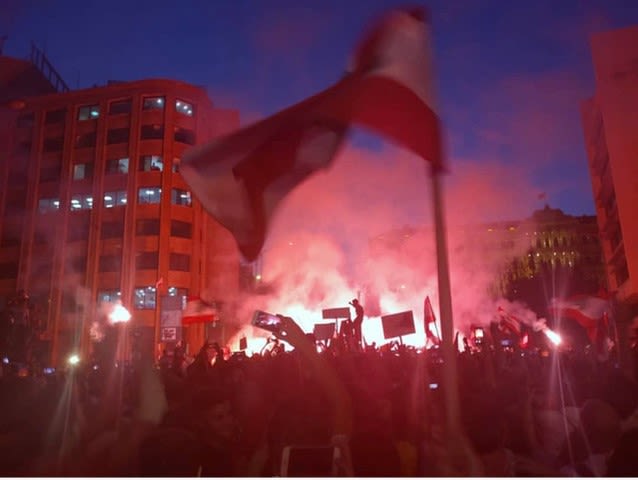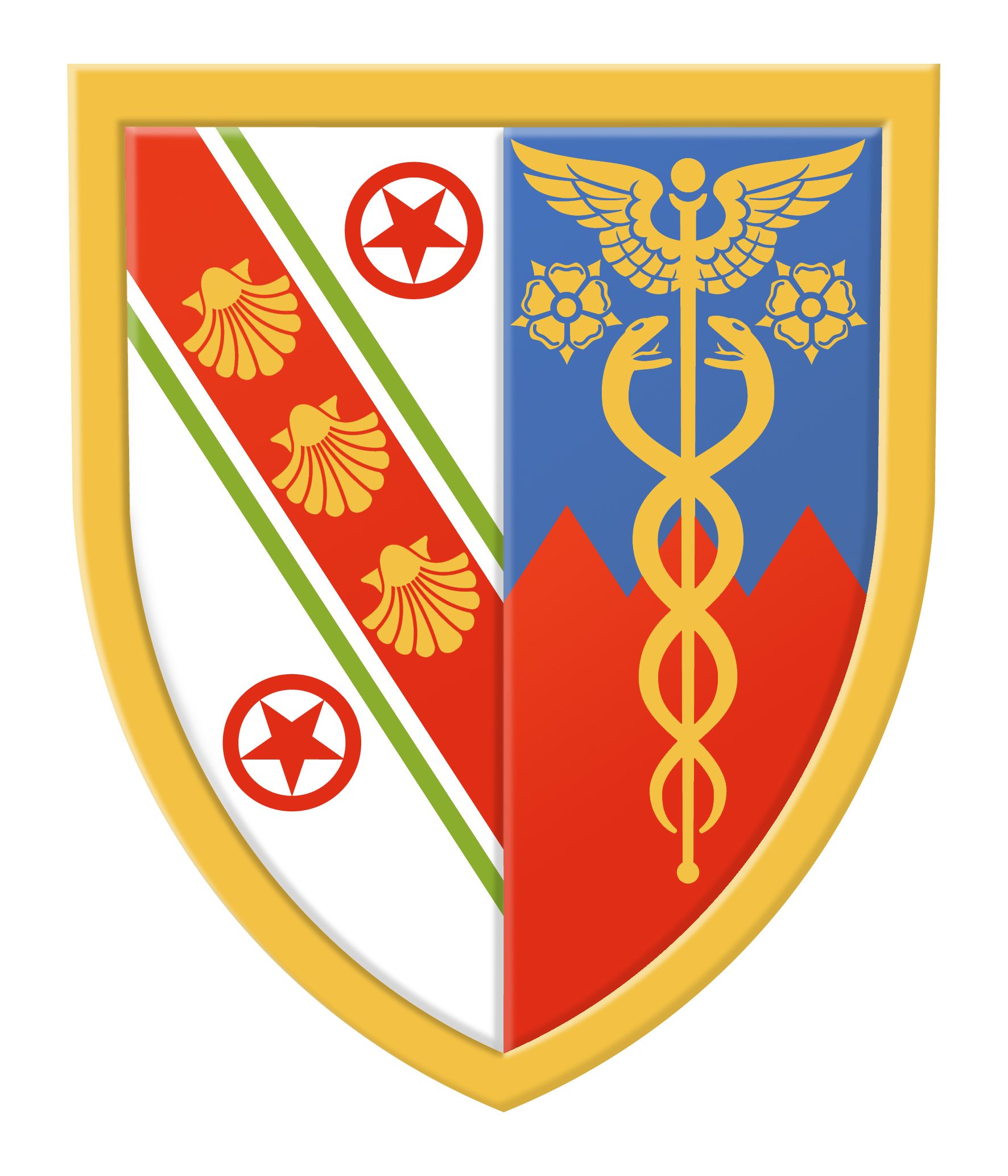Darwin and Conflict
Political Violence in Lebanon:
The aftermath of the Tayouneh Conflict

C onflict in itself is neutral; it is a necessary and inevitable part of human interaction on multiple levels. In Lebanon, conflict is almost always waged violently. Violence is present in every aspect of life, be it individual, institutional, political, or socio-cultural. During the secular movement that began in October 2019 across Lebanon, a narrative of peace and true coexistence existed among the residents, a phenomenon that showed awareness and ownership of the socio-political state of the country. This narrative was soon overshadowed by the economic and political pressure to sustain the existing corrupt imbalance of power imposed by local and international governments who continue to use Lebanon as a proxy battleground.
To make matters worse, the worldwide health crises of COVID-19 was soon to follow. ‘Lebanon’ as a concept was only formed 101 years ago in 1920, yet its brief history is stained with violent conflict. Due to the tyranny of various governments and governors whose interests fail to serve the nation, we fight over identity, culture, and history. To this day there is no unified book on Lebanese history as the 18 sects in the country differ in their reading of it.
Lebanon is perhaps the country most subjected to social, political, and economic events, changes, and catastrophes in the Mediterranean; let alone in modern history. These include: the massacres of Mount Lebanon (1860); the declaration of the State of Greater Lebanon (1920); Lebanon’s Independence (1943); the Cairo Agreement that paved the way to the civil war (1969); the Civil War (April 13, 1975 – October 13, 1990); the Israeli Invasion (1982), the February 6 Intifada (1984); the Taef Agreement (1989); the Seven Days War on Lebanon, also known as Operation Accountability (1993); Operation Grapes of Wrath (1996); the Israeli Withdrawal from Lebanon (2000); the Assassination of Rafic Harriri (2005); the July War (2006); the May 7 conflicts (2008); the Doha Agreement that ended the former conflicts (2008); the Israeli-Lebanese conflict, also known as the Edayse conflict (2010); the Kabrshmoun – Al Basateen incident (2019); the 17th of October uprising/revolution (2019); the August 4th Beirut Port Explosion (2020); and finally, the most recent Tayouneh conflict (2021).
Given Lebanon’s history the country is charged with friction and political tension, which came to the surface on Thursday October 14th in Tayouneh, an area that is adjacent to the southern suburbs of Beirut. The violence in the political speech that arose because of this event is not surprising. The incident accentuated a security gap and a social shock; one which Lebanon cannot overcome except with a lot of wisdom, slowing down, and socio-political awareness aimed towards protecting coexistence and civil peace as stated in the Lebanese Constitution.
The impartial observer of both the apocalyptic scene that recently occurred and the responses of various Lebanese political parties which followed, would be struck by the violent rhetoric from all parties. The leader of the Lebanese Forces (LF) who considered the event a normal matter that happened in response to the Hezbollah posture towards the judge responsible for the Port Explosion case, dangerously referred to the incident as a “mini May 7”, alluding to the conflicts that broke out in 2008.
Similarly, the response statement of the Loyalty to the Resistance Bloc did not invite its supporters to calm down. On the contrary, he promised a violent response and reckoning, stating that they “will not accept the blood shed to go to waste”. He then continued to remind the former of their history, highlighting the role the leaders of the LF have played in the massacres and threats towards civil peace.
Meanwhile, the Secretary General of Hezbollah said that the real program of the LF is to reignite a civil war that will change the demographics of the country. He continued to reveal that Hezbollah has a hundred thousand fighters, as well as many supporters, and an environment that embraces them. The graphic scenes directly affected children and school students who hid in the hallways, threatened, killed, and injured various civilians, paralysed the government meetings, restored the war rhetoric, and brought back the historic memory for the conflicting parties.
In front of this reality charged with violent speech, incitement, blood, and the threat of war, Lebanon is in a tragic situation in every sense of the word. Here, three pressing questions must be asked:
Will humanitarian action be able to hold the war lords and corrupt governors accountable without directly affecting innocent exhausted civilians?
Should, or can, the Lebanese people forget and move away from violent conflict?
Can we overcome those who refuse forgiveness?
If you enjoyed this article you may also be interested in:
Filippo Grandi. Darwin College Lecture Series 2018
Filippo Grandi. Darwin College Lecture Series 2018
Refugees and Migration: Drawing on more than 30 years of experience in international affairs, UN Commissioner for Refugees Filippo Grandi reflects on how, in a world of modern nation states, shared prosperity, and boundless capabilities can refugees and migrants on the move today find themselves exposed to kidnapping for ransom, imprisonment and torture? And what is the role of international cooperation and the modern system of international refugee protection?
Lyse Doucet. Darwin Lecture Series 2017
Lyse Doucet. Darwin Lecture Series 2017
Reporting from Extreme Environments: Lyse Doucet is the BBC ’s award winning Chief International Correspondent who spends much of her time covering stories in our news headlines including devastating wars in Syria and Iraq as well as Afghanistan. She often focuses on the human costs of conflict.
David Runciman Darwin College Lecture Series 2017
David Runciman Darwin College Lecture Series 2017
Dealing with Extremism: Many extremist ideologies rely heavily on conspiracy theories to explain how the world works and where power lies. This lecture explores our understanding of conspiracy theories – where they come from, how they work, who believes in them – and what they can tell us about dealing with extremism.
2017 Lecture Series book curated by Martin Jones and Andy Fabian
2017 Lecture Series book curated by Martin Jones and Andy Fabian
Conflict, sadly, is part of our everyday life; experienced at home, in the workplace, on our TV screens. But is it an inevitable part of the fabric of our existence? In this volume, eight experts examine conflict at many levels, from the workings of genes to the evolution of galaxies.





